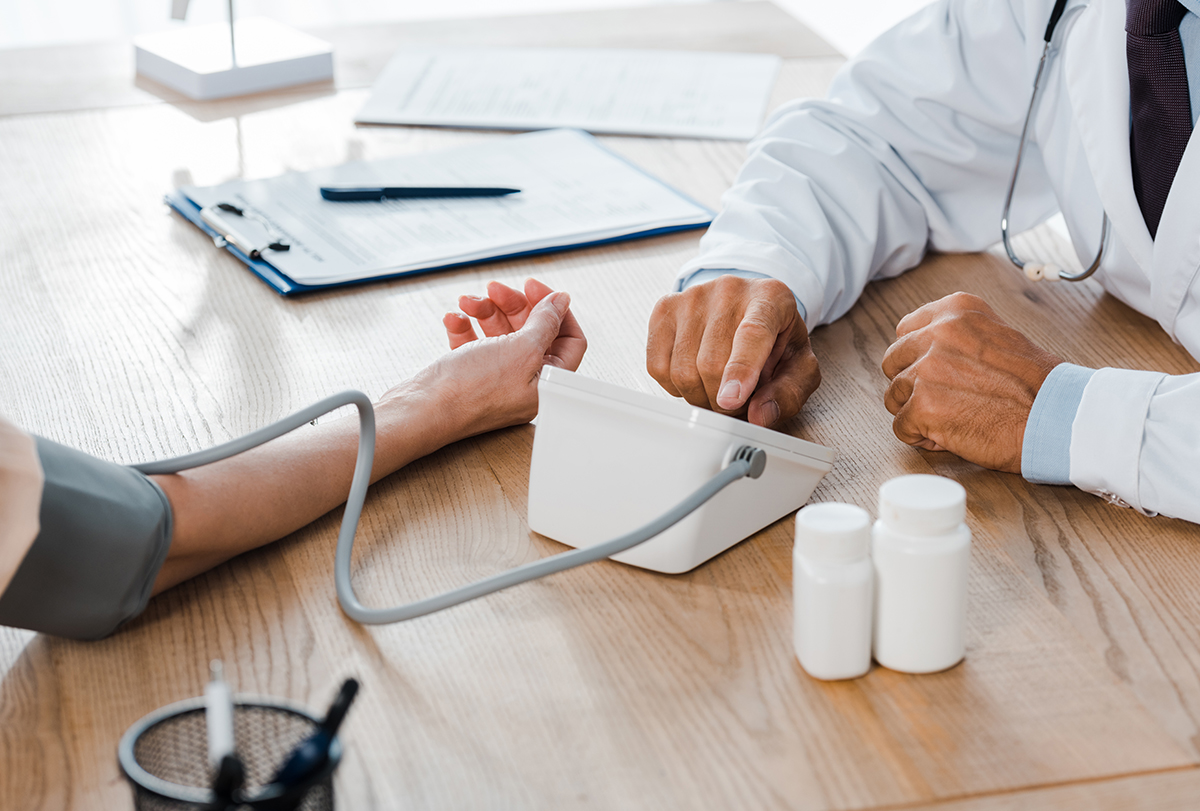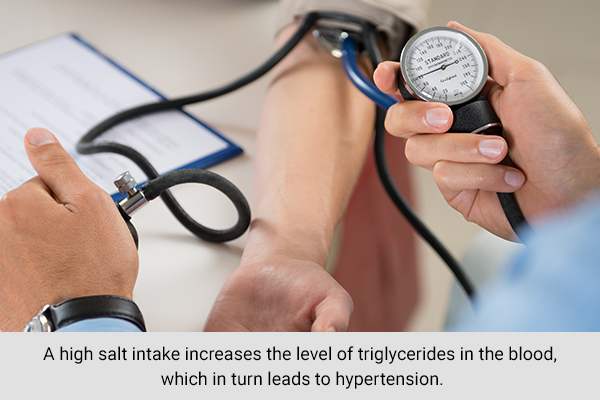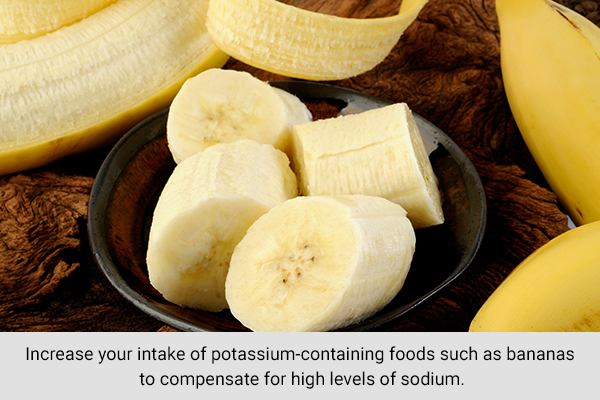In this article:
Salt, or sodium chloride, is commonly used to flavor and preserve foods. However, eating too much salt can be harmful as it increases cardiovascular risk.

How Much Salt Intake Is Recommended?
Health organizations recommend a low sodium intake below 2.3 g/day or 5.8 g salt/day. (1) Sodium is a physiologically important mineral. Hence, too much or too little sodium intake can have adverse effects on many body processes.
Recent research indicates that consumption of moderate amounts of sodium (3–5 g/day) is associated with the lowest cardiovascular risk, and when sodium intake increases beyond 5 g/day or decreases below 3 g/day, the cardiovascular risk increases. (1)
What Is Blood Pressure?
Blood pressure is a measure of the force the heart uses to pump blood around the body. It is measured as systolic blood pressure and diastolic blood pressure.
Systolic blood pressure is the highest pressure on the blood vessels when the heart pushes blood out. Diastolic blood pressure is the lowest pressure on the blood vessels when the heart relaxes between beats. Both are measured in millimeters of mercury (mm of Hg) and presented as a ratio of systolic/diastolic (120/80 mm of Hg). (2)
- Low blood pressure: Denotes a systolic blood pressure <90 mm Hg and diastolic blood pressure <60 mm Hg.
- Normal blood pressure: Denotes a systolic pressure of 120–129 mm Hg and a diastolic pressure of 80–84 mm Hg.
- High blood pressure: Denotes a systolic pressure of ≥140 mm Hg and a diastolic pressure of ≥90 mm Hg.
How Does Salt Affect Blood Pressure?

- A diet high in salt causes an increase in sodium levels in body fluids. Under normal conditions, the kidneys excrete sodium to maintain it at a normal level. (3)
- An increase in sodium means an extra burden on the kidneys. If the kidneys are not able to excrete all the excess sodium, fluid retention in the body occurs to dilute excess sodium. This in turn leads to an increase in blood volume, causing an extra load on the heart. (4)
- The pressure on the blood vessels increases, causing them to constrict, leading to hypertension. Recent research shows that the consumption of high amounts of salt has adverse effects on blood pressure and increases the risk of cardiovascular disease. A recent review of studies on salt intake and blood pressure published in the Journal of Hypertension concludes that reduction of dietary salt intake leads to other health outcomes in addition to lowering blood pressure. (5)
- An increased salt intake (high sodium) is associated with increased stiffening of the arteries, which carry blood from the heart. This leads to an extra load on the heart muscles to pump blood effectively, thereby increasing blood pressure. (6)
- A high salt intake increases the level of triglycerides (a type of fat) in the blood, which in turn leads to hypertension. (7)
How to Avoid Excessive Salt Intake
Based on current evidence, a diet low in salt is recommended to avoid high blood pressure and its consequent adverse effects on health. To limit your intake of salt, follow these tips:

- Avoid packaged meats. Instead, choose fresh meat.
- Read the label on the package when shopping. Avoid foods that mention sodium or soda.
- Buy fresh food as much as possible, and avoid processed and packaged foods.
- Limit your intake of sauces, soups, canned foods, and pickles.
- Avoid foods such as pizza, spaghetti with sauce, ham, processed cheese, white bread, and cooked foods since these are high in salt.
- Increase your intake of potassium-containing foods such as bananas to compensate for high levels of sodium.
Most-Asked Questions
What is the safe level of dietary salt intake?
A 2014 review published in Electrolytes & Blood Pressure recommends a reduction in daily intake from the present 9–12 g/day to less than 5–6 g /day. (8)
Which salt does not increase blood pressure?
Table salt is made up of mostly sodium chloride, whereas pink salt has other elements such as zinc, calcium, iron, and iodine, making it a healthy alternative to table salt. However, excessive consumption of pink salt is just as likely to raise blood pressure as it still contains sodium.
You can use low sodium salts (mainly containing potassium) or alternative seasonings such as lemon, celery, pepper, or mint to flavor food.
How long does salt stay in the body?
Excess sodium from a meal high in salt takes 2–4 days to be cleared from the system. This can be accelerated by drinking extra water, sweating, exercising, and taking foods high in potassium.
Final Word
There is considerable evidence that links a high salt intake with high blood pressure, and a reduction in salt intake has a positive impact on your blood pressure. Hence, an optimal sodium intake between 3 g and 5 g per day is recommended to keep your blood pressure in check.
- Was this article helpful?
- YES, THANKS!NOT REALLY


